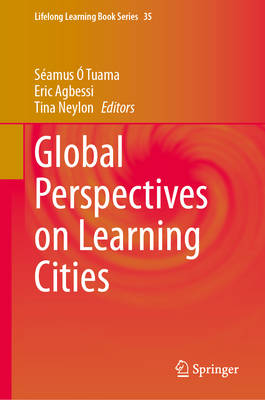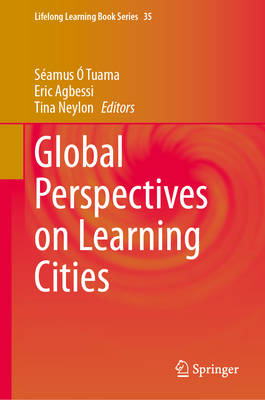
- Retrait gratuit dans votre magasin Club
- 7.000.000 titres dans notre catalogue
- Payer en toute sécurité
- Toujours un magasin près de chez vous
- Retrait gratuit dans votre magasin Club
- 7.000.0000 titres dans notre catalogue
- Payer en toute sécurité
- Toujours un magasin près de chez vous
Global Perspectives on Learning Cities
305,45 €
+ 610 points
Description
This book examines the social, political and economic rationales, which lead to the development of learning cities in diverse settings in Africa, Australia, Asia and Europe. Many of the contributors are practitioners who have played an active part in the development of their learning city. Some contributors are both practitioners and researchers on learning cities. Some are primarily researchers who are focused on understanding learning cities, gauging the benefits and potential of learning cities and formulating new theories and approaches. The book also includes interviews with and contributions from key founding figures in the learning cities movement and in the development of UNESCO's Global Network of Learning Cities. The book explores diverse initiatives that are shaping the lives of people in cities today and into the future, fostering inclusivity, sustainability, and resilience. Each chapter offers a unique perspective on the transformative power of lifelong learning and collective commitment. Contributors share their insights, from grassroots to high level policy discussions, shedding light on the challenges and triumphs encountered along the way. This is the first major book looking at learning cities across the globe from both theoretical and practical perspectives. What sets it apart is the diversity in the material offered and the geographical and cultural spread of contexts. Cities are becoming ever more important to the future of humanity, learning cities are a vast laboratory of new and innovative ways in which people can learn together to create more fulfilling lives, better opportunities and put into practice on a daily basis the four principles outlined in the Delors Report (1996): Learning to know, Learning to do, Learning to live together, Learning to be. This book is a valuable resource for policymakers, educators, and community leaders striving to build more inclusive and sustainable societies. Whether embarking on the journey of developing a learning city or seeking inspiration from successful initiatives, readers will find practical insights and thought-provoking perspectives within these pages.
Spécifications
Parties prenantes
- Editeur:
Contenu
- Nombre de pages :
- 208
- Langue:
- Anglais
- Collection :
- Tome:
- n° 35
Caractéristiques
- EAN:
- 9783031911095
- Date de parution :
- 02-09-25
- Format:
- Livre relié
- Format numérique:
- Genaaid
- Dimensions :
- 156 mm x 234 mm
- Poids :
- 498 g

Les avis
Nous publions uniquement les avis qui respectent les conditions requises. Consultez nos conditions pour les avis.





